
Transmaraña puts its trust in the RoadEfficiency of Mercedes-Benz Trucks
Business & Logistics
Until not so long ago, there were no Mercedes-Benz trucks on Transmaraña’s fleet but having tested one, the Spanish transport company found the RoadEfficiency concept compelling. Now the Actros helps ensure the Gijón-based company’s success in the extremely price-sensitive container trucking segment.
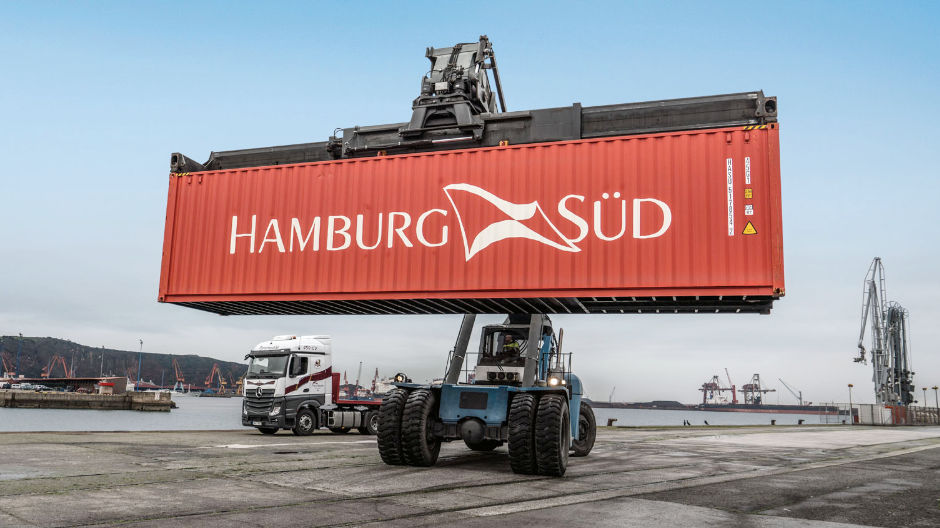
90 per cent of the international goods trade carried by sea is shipped in containers.
Somewhere inside the gigantic hall a radio is playing: acoustic guitar and castanets. The Spanish rhythms are accompanied by the coarse sound from a water-cooled metal cutting saw patiently biting its way through the protruding strut of a transport rack. It is required for three large, bridge-like metal structures that are lined up in the rear part of the warehouse and are about to be shipped overseas by container.
This article contains additional material (videos, images and reports etc.) for registered RoadStars members. In order to experience the article to the full, you need to log in with your RoadStars account or register for one free of charge.
Become a RoadStar and gain access to exclusive content and campaigns!
Login for RoadStars members
Not yet a member? Join RoadStars now
Obtain exclusive access to exciting events and activities which only RoadStars can offer.
Join RoadStarsThe skylight throws a silvery sheen over the zinc-plated steel. A clue is needed to work out the intended purpose of these elongated shapes with a slight kink at both ends: they are metal casings for escalators. Soon there will be steps gliding along inside them where customers at shopping malls in Beijing, Jeddah or Mexico City can take a quick breather. Before that can happen, the components first need to be shipped to their destination, however. Excluding bulk goods such as coal, chemicals or wheat, around 90 per cent of all internationally traded goods are shipped by sea, inside containers.
“The efficiency of the Actros has helped us run a successful operation in the container trucking business.”
– Aarón Bastián González, Managing Director Transmaraña
“We generate about 20 per cent of our revenue through container-related transportation and logistics services,” says Aarón Bastián González, the boss at Transmaraña. The freight forwarding and logistics service provider operates primarily in the national Spanish long-distance segment but also provides interim storage for cargo – the escalator in this case – before delivering it to the container port of Gijón – or to any other destination or shipping location in Europe – just in time for loading.
Gijón is only in the second tier among Spain’s container ports in terms of size and volume, but it has a strong reputation for imports of bulk cargo like iron ore and coal. Even so, transhipments of the large metal boxes have increased almost ten-fold since 2006. In 2017, some 66 000 TEU – the acronym stands for Twenty-foot Equivalent Unit, which refers to the dimensions of a standard container – were shipped from Gijón into the world.
The city on the Atlantic coast in northern Spain is a so-called feeder port for the major shipping companies that dominate the business worldwide. Containers are brought to and collected from these feeder ports. They in turn are linked to the major European hubs like Antwerp, Rotterdam and Algeciras, from where the containers are then shipped to other continents on giant container ships. The Asturian city does boast a number of direct overseas connections to Latin America, and it is a port for key commodities. There is also a highly diversified, export-oriented local economy, featuring automotive component suppliers, modern agriculture and all kinds of internationally sought-after goods, from the sporting goods sector, for example.
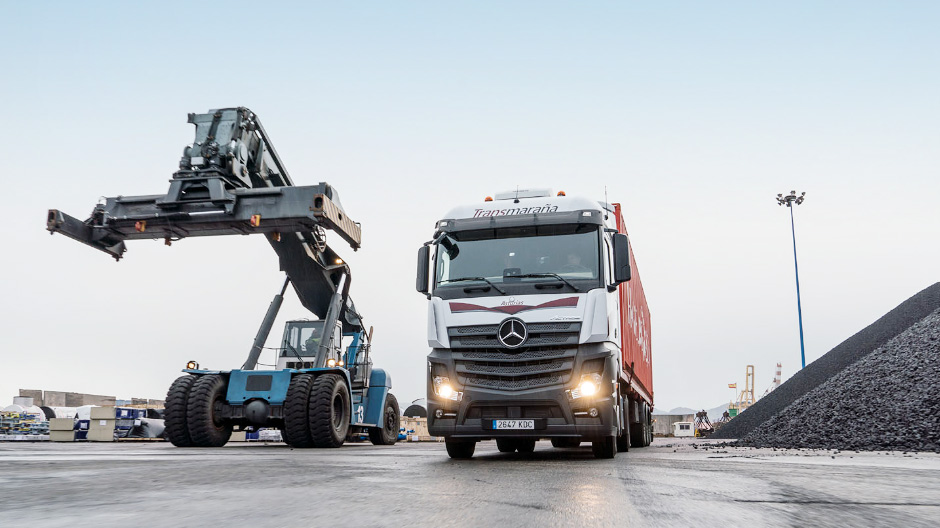
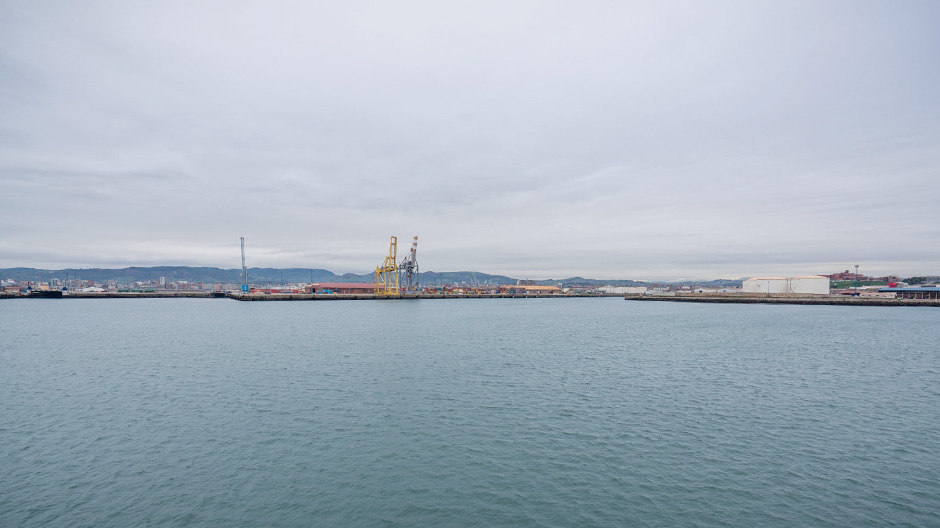
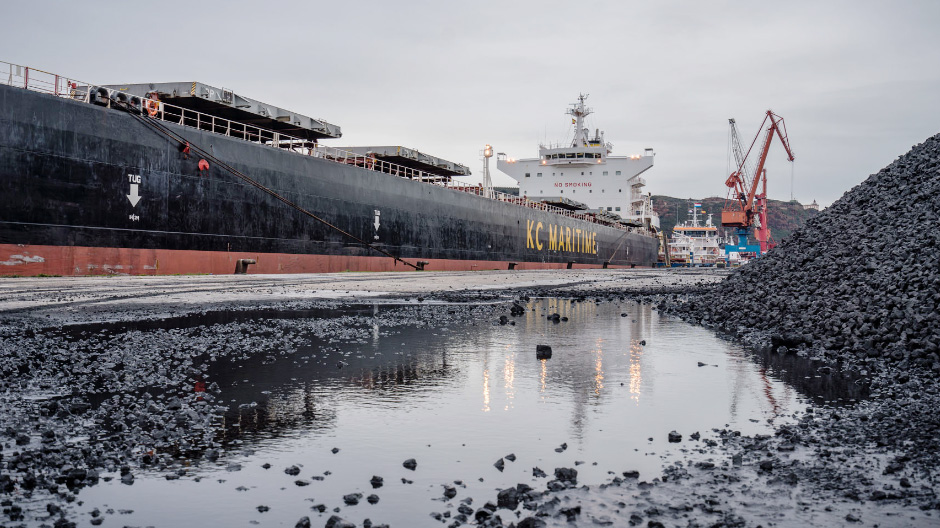
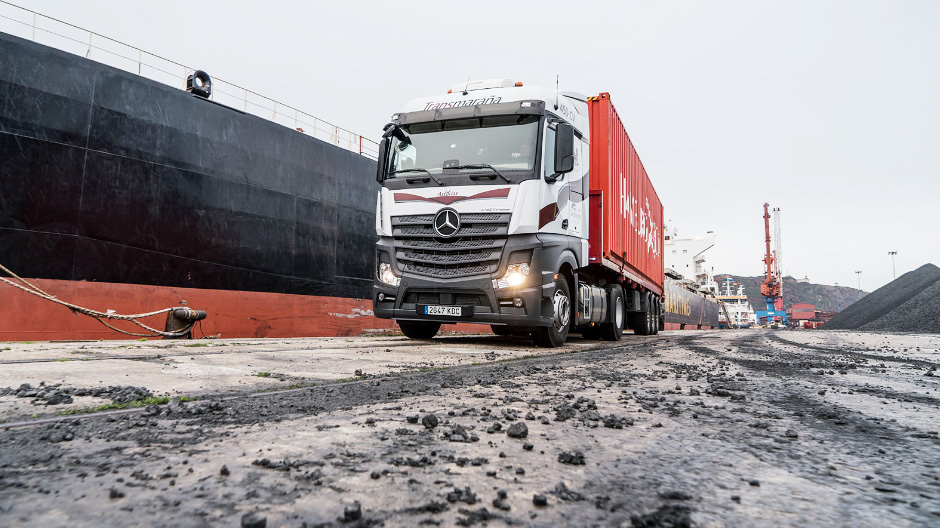
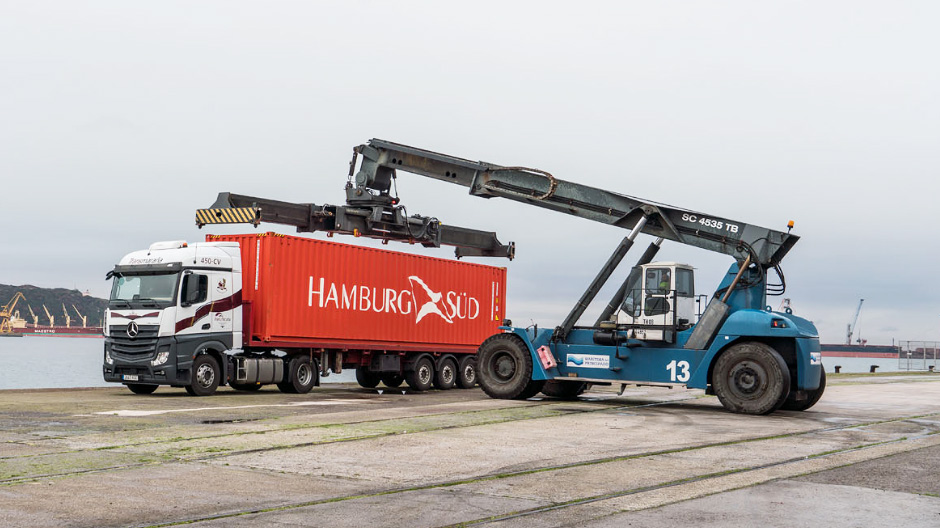
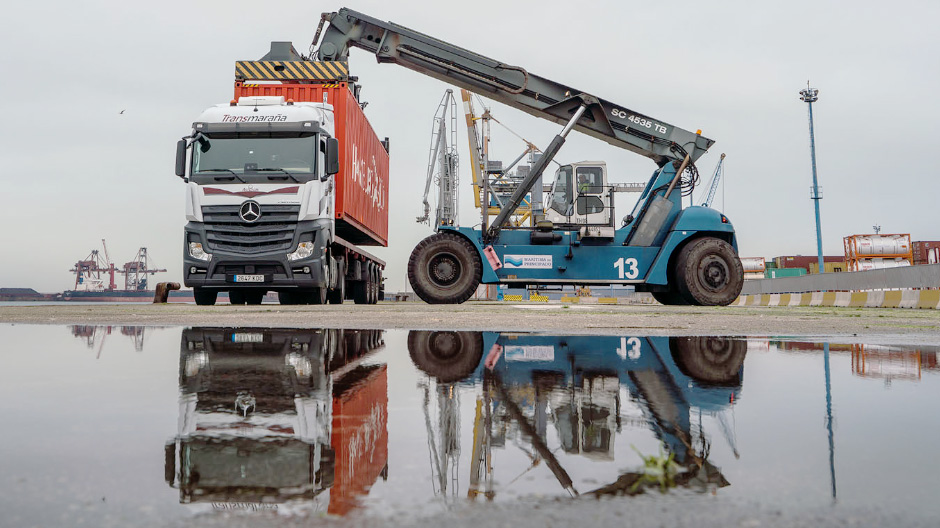
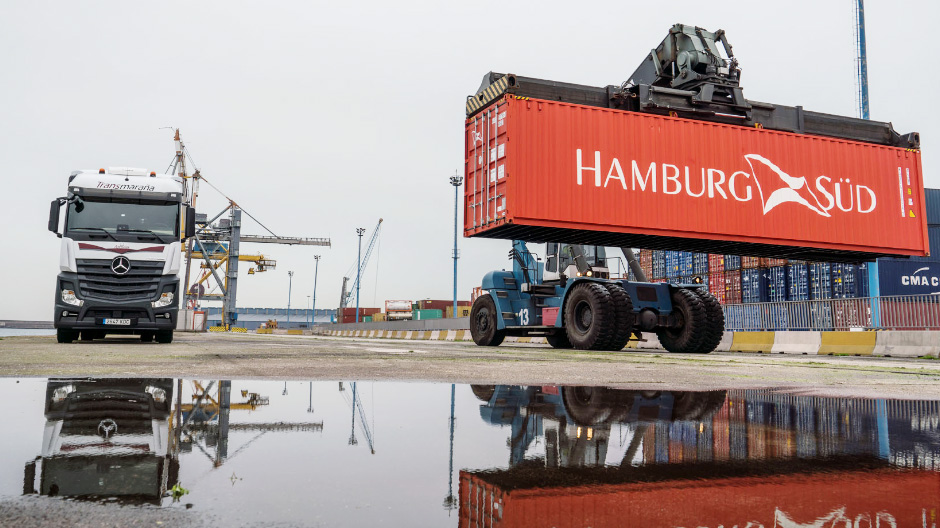
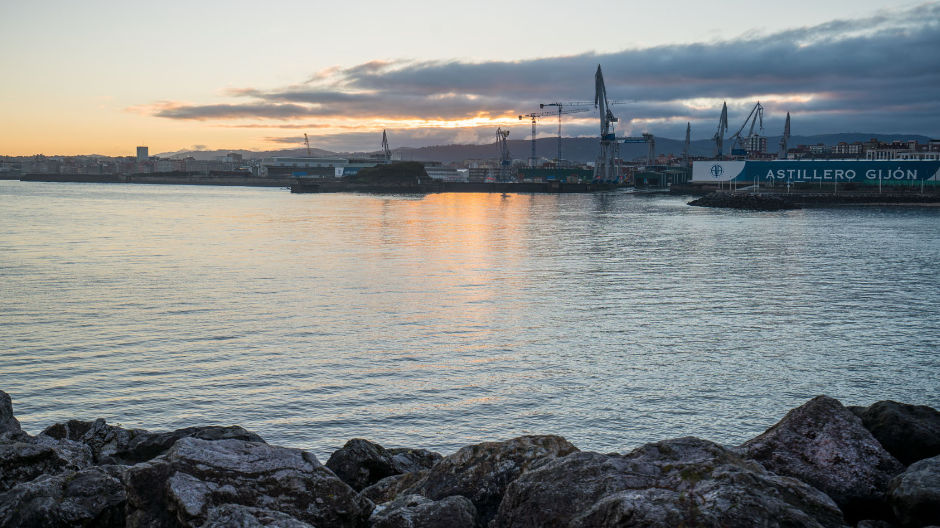
Logistics services in the spotlight.
Until recently, Transmaraña’s business activities were primarily focused on the provision of logistics services in the container segment. Shipments have been prepared for dispatch, and containers have been loaded and unloaded. Bastián is now also becoming active in container trucking: “Margins are not high in this segment, but we want to be able to offer our customers an integrated service so that they can benefit from our reliability and flexibility not only in terms of warehousing and logistics, but also in the transportation of the containers themselves.”
Bastián is convinced that this will pay off for him because he is able to deploy his trucks flexibly thanks to his efficient long-distance fleet. Nevertheless, the challenges to be overcome in container trucking are considerable: predominantly short distances, modest freight rates and ports with strict access rules and tight time windows for delivery and collection. Anyone who wants to succeed in these circumstances needs trucks that are second to none in terms of efficiency.
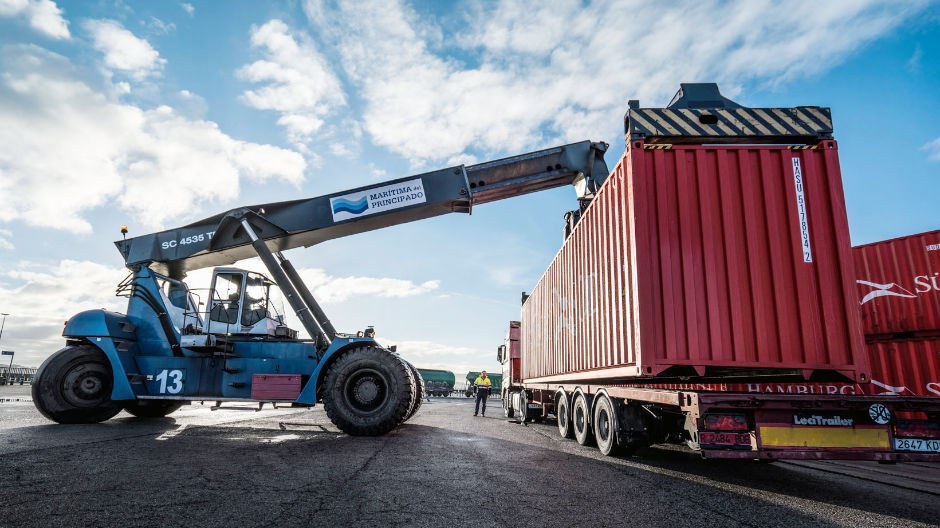
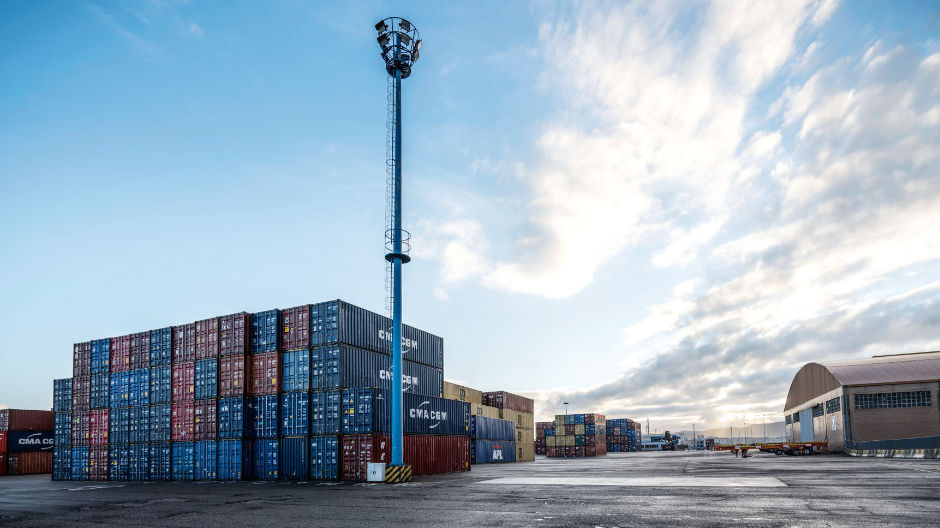
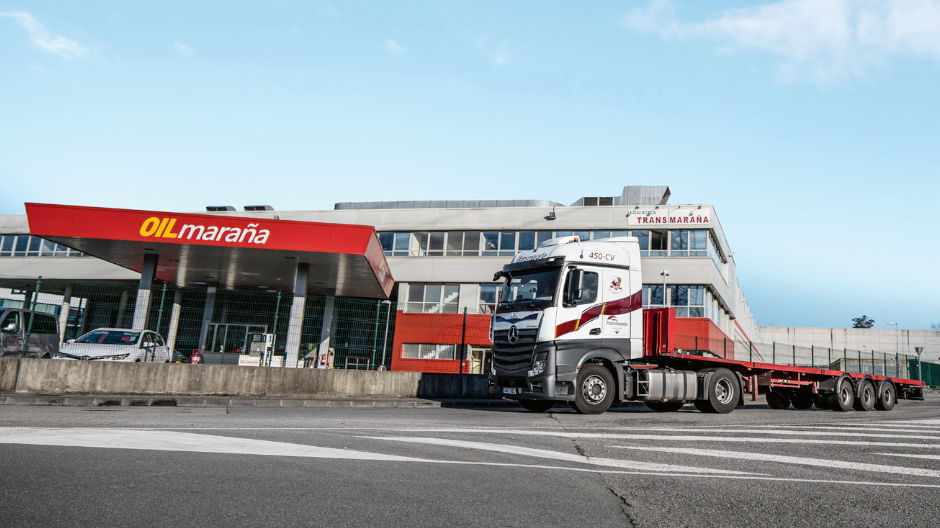
At present Transmaraña operates 41 prime movers from different manufacturers. Until a year ago, the company had never worked with Mercedes-Benz Trucks. Then the dynamic local Mercedes-Benz dealer came up with the idea of letting Bastián do some trials with an Actros. The result: the vehicle used over two litres of diesel less over 100 kilometres than the most economical truck from another manufacturer currently in the Transmaraña fleet.
“That was a real surprise, because we do run quite a modern fleet here,” says Bastián. “The efficiency of the Actros has clearly helped us run an operation in the price-sensitive container trucking business that has good prospects.” The Transmaraña drivers have also come to appreciate the comfort, driving dynamics and handling of the new truck. The result: immediately after completing his test drive, Bastián bought three new Actros 1845, and eight more will be delivered in the course of this year.
Photos: Matthias Aletsee
Video: Martin Schneider-Lau

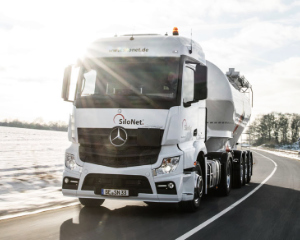


Comment
Please log in to post a comment.
1 comment